Travel Credit Cards
Travel credit cards are a convenient way to earn additional points or miles for your adventures. Most co-branded cards will offer a base option with no annual fee. The Hilton Honors AMEX (see below) is the only travel card I currently use without an annual fee. The others I mention in this post waive the annual fee for the first year. If you only travel a few times a year, you’re better off starting with either no annual fee cards or ones with annual fees of under $100.
This post contains affiliate links. If you make a purchase or sign up for one of the travel credit cards mentioned in this post, you’ll help support this site at no additional cost to you.
United Chase Explorer
Thanks in part to the United Chase Explorer Visa card, I was able to travel round trip from Newark to Tokyo back in September 2019 with just 70,000 miles. They are currently offering 40,000 bonus miles if you spend $2,000 within the first three months. That alone is enough for a round trip to most places in North America.
While the bulk of my spending with this card is always on United tickets, I also use it at restaurants and for food delivery. They offer 2 miles per dollar spent on either. If you frequent Starbucks or Panera Bread, you can usually get 5 to 15% back on purchases made with the card. The offers vary from period to period. If you are a frequent flier, you’ll know that even the smallest airports tend to have at least one Starbucks, no matter where you are in the world.
Summary:
- Current sign-up bonus: 40,000 miles after spending $2,000 in first 3 months
- Annual fee: $95 (waived for the first year)
- One United mile = $0.0175*
United Airlines benefits:
- 2 miles per dollar spent on United purchases
- First checked bag free
- 25% back on in-flight purchases
- Two United Club passes per year
- Up to five referral bonuses per year (starting at 10,000 miles each)
- Priority Boarding
- No blackout dates
- Premier upgrades on award tickets
- Lost luggage reimbursement up to $3,000 per passenger
Travel benefits:
- $100 statement credit towards Global Entry or TSA Precheck
- No foreign transaction fees
- Auto rental collision damage waiver
- Roadside assistance $50 per incident, 4 times annually
- Travel accident insurance up to $500,000
- Baggage delay insurance up to $1oo/day up to 3 days after 6-hour delay
- Lost luggage reimbursement up to $3,000/passenger
- Trip delay reimbursement up to $500/ticket after 12-hour delay
Other benefits:
- 2 miles per dollar spent at restaurants (including most food delivery services)
- 1 mile per dollar spent on all other purchases
- Purchase protection for up to 120 days against damage or theft
- Extended warranty protection
- Free credit score
*fluctuates depending on the travel date and destination
Delta SkyMiles Gold Card
Back in October, I flew round trip from JFK to Mexico City with just 28,000 miles. Since JFK is the airport I use the most (after Newark), Delta is an ideal second travel credit card for me. I use this card primarily for Delta flights, but I also use it at grocery stores, where I earn two miles per dollar spent.
They also have up to 100 different AMEX offers on any given month. As of January 2021, a few of those include 1-800-Flowers, Hello Fresh, and Peets Coffee. AMEX offers are much more generous and varied compared to those from Chase, but they all have a minimum spend requirement. For example, if you spend $50 or more at wineinsiders.com, you get $25 back.
Summary:
- Current sign-up bonus: 35,000 miles after spending $1,000 in the first 3 months
- Annual fee: $99 (waived for first year)
- 1 SkyMile = $0.009*
Delta benefits:
- Double miles on Delta purchases
- First checked bag is free on Delta flights
- Main Cabin 1 Priority Boarding
- 20% back on in-flight purchases
- $100 Delta flight credit after $10,000 purchases in one year
Other Travel Benefits:
- No foreign transaction fees
- Premium car rental protection
- Car rental loss and damage insurance
Other benefits:
- Double miles at restaurants and supermarkets
- 1 mile per dollar spent on all other purchases
- Amex offers
- Purchase protection up to 90 days
- Extended warranty on warranties of 5 years or less
- Auto rental collision damage waiver
- CreditSecure discount
*fluctuates depending on the travel date and destination
Hilton Honors Card
With my 80,000 sign up bonus points, I spent a long weekend at a Hampton Inn outside of Newport, Rhode Island, over Labor Day weekend. While I mostly use my Hilton Honors AMEX for Hilton brand hotel reservations, I also use it at gas stations, where it earns 5x points. You can also earn 5x points on dining and groceries. While the Delta Gold AMEX is my primary card for the grocery store (unless it’s Whole Foods), I sometimes use the Hilton Honors card for groceries as well. It all depends on what my future travel plans are. If I’m looking to accumulate miles for a Delta flight, I’m more likely to use the SkyMiles Gold AMEX.
They also have up to 100 different AMEX offers on any given month. As of January 2021, a few of those include 1-800-Flowers, Hello Fresh, and Peets Coffee. AMEX offers are much more generous and varied than those from Chase, but most have a minimum spend requirement. For example, if you spend $250 or more with Wine Enthusiast, you get $50 back.
Summary:
- Current sign-up bonus: 100,000 points after spending $1,000 in the first 3 months
- Annual fee: none
- 1 Hilton Honors point = $0.005*
Hilton Honors benefits:
- 7x points on Hilton purchases
- Complimentary Silver Status
Other travel benefits:
- No foreign transaction fees
- 5x points on gas
- Car rental loss and damage insurance
Other benefits:
- Amazon shop with points
- 5x points on groceries and dining
- 3x points on all other purchases
*fluctuates depending on the travel date and destination
Travel Credit Cards Summary
You also need to keep the 5/24 rule in mind. Even if you have a perfect credit score, most banks are not likely to give you a new credit card if you opened five accounts in the past 24 months.
According to Credit Karma, the average American has three credit cards. Here are my suggestions if you are not a full-time traveler and have not opened a new account in the past 24 months.
- A co-branded card(s) with the airline(s) you fly the most. In the United States, there’s a huge drop-off in terms of daily service after the big four (American, Delta, Southwest, United). If you’re not sure which to choose, see who is offering the most generous sign-up bonuses. They change pretty often, but the changes are not usually drastic. Then think about where you typically fly from. For example, I have the United Explorer Visa and Delta Gold AMEX because EWR and JFK are my main airports.
- A co-branded card(s) with the hotel chain you use the most. Since 2001, I’ve stayed in more Hampton Inns than any other chain hotel. But I’m just as likely to stay in an Airbnb or with family/friends, so I can’t currently justify paying an annual fee on a hotel credit card. It was either the Hilton Honors AMEX or the Marriott Bonvoy Bold. I chose Hilton, although I plan to apply for the Marriott Bonvoy Boundless Visa later this year.
- A cash back card for non-travel purchases. If you are not a full-time traveler, you may prefer a cash back option. The Chase Freedom Unlimited currently offers 5% back on travel, 3% at restaurants and drug stores, and 1.5% on everything else. Chase also has the Amazon Prime card, which is preferable to the Freedom Unlimited IF you spend more on Amazon (or at Whole Foods) than you do on travel.
Want to keep the conversation going? Let’s connect via my social links below.
Like this post and want to share? Want to earn miles and points for an upcoming trip? Pin it!

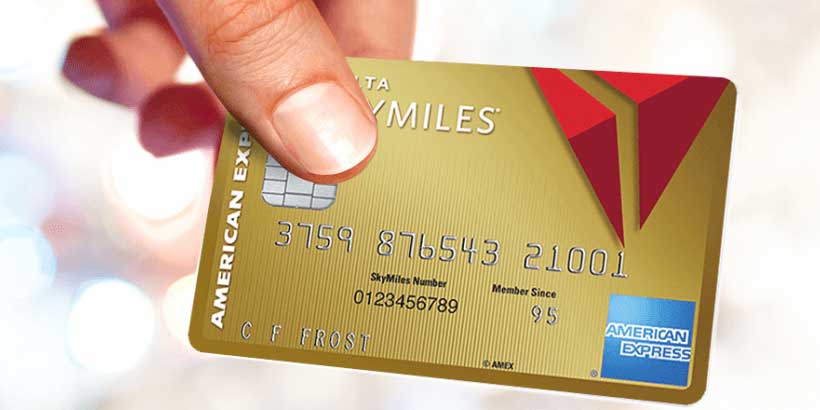

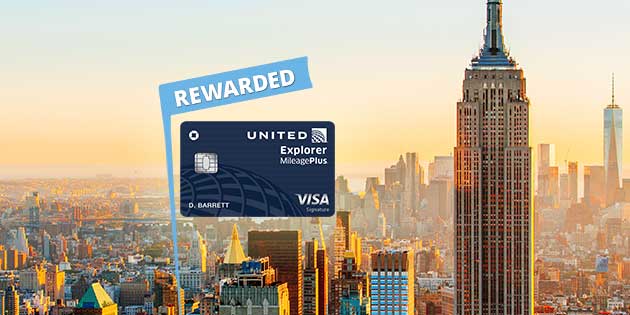

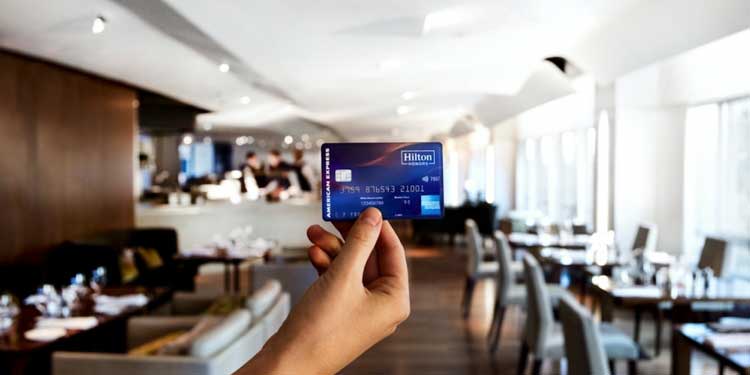
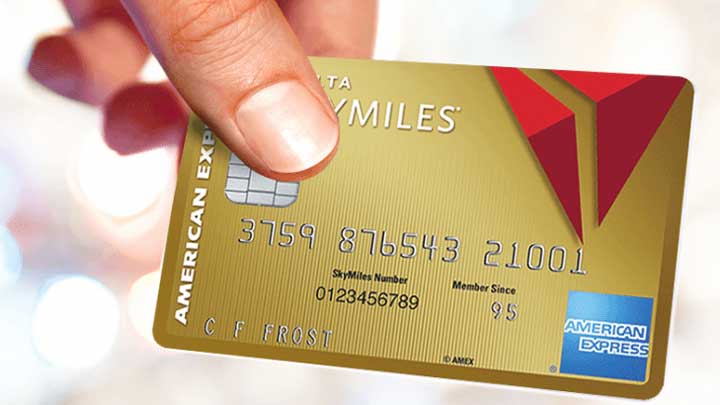




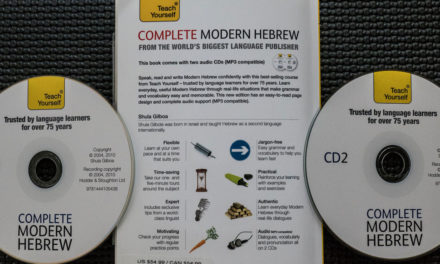

This is a lot to consider! We are planning to start traveling this year, but hadn’t put thought into credit cards. We were saving up to go more cash-based… Good info to know!
Great review! I personally use United Airlines so I think the first card makes sense to me. Great comparison. I learned a lot from it.